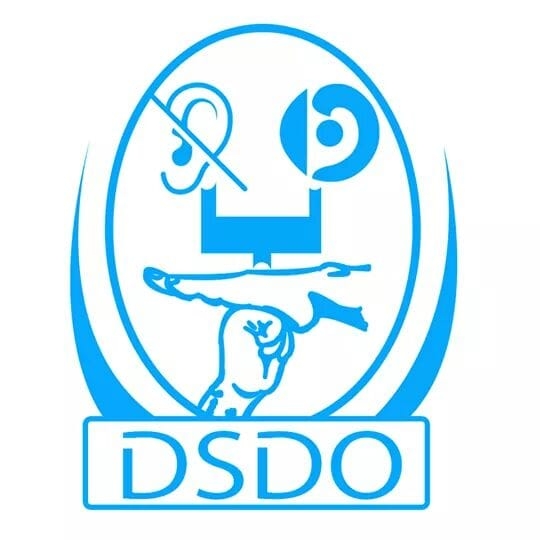Project
Sign Language: Pro-integration and access
-
Amount Funded
24,787 EUROProject Duration
01 Apr 2018 - 31 Mar 2019 -
-
Lead organisation
-
Deaf’s Sustenance and Development Organisation (DSDO) was found in 2016 and registered as a Non-Governmental Organisation (NGO) under the Non-governmental Organisations Act of 2002. DSDO was established to serve the interests of the most vulnerable and marginalised groups, mainly people with disabilities. The organisation’s goal is to improve the livelihood of the people they serve, by improving access to resources, social services, and participation.
Since its establishment, DSDO has worked with several stakeholders, including the Local Government, donors, and local partners. In the past five years, DSDO has worked in cooperation with other stakeholders in building the capacity of the deaf community in the Southern Highlands of Tanzania. DSDO has focused on improving skills, boosting economic status, raising awareness about human rights, and building the confidence of their rightsholders.
-
Organisation
Deaf’s Sustenance and Development Organisation (DSDO) was found in 2016 and registered as a Non-Governmental Organisation (NGO) under the Non-governmental Organisations Act of 2002. DSDO was established to serve the interests of the most vulnerable and marginalised groups, mainly people with disabilities. The organisation’s goal is to improve the livelihood of the people they serve, by improving access to resources, social services, and participation.
Since its establishment, DSDO has worked with several stakeholders, including the Local Government, donors, and local partners. In the past five years, DSDO has worked in cooperation with other stakeholders in building the capacity of the deaf community in the Southern Highlands of Tanzania. DSDO has focused on improving skills, boosting economic status, raising awareness about human rights, and building the confidence of their rightsholders.
-
Project
Sign Language-Pro Integration and Access is a participatory initiative designed by DDSO run by deaf people in Njombe region. The action is designed to serve the deaf community which is experiencing social political and economic exclusion as a result of communication barriers existing among the deaf themselves, social service providers, local government administrators and the community at large. Specifically, the project aims at advocating for integration and access by deaf people in Njombe Region through inclusive sign language.
This initiative is in line with the Persons With Disability Act, 2010 that strives, among other objectives, to promote accessibility and integration, by people with disabilities, including deaf people. Relevant to the Persons With Disability Act, 2010, this initiative increases access to social services and community support services including personal assistance, sign language interpretation and integration in community access to information about available support services for deaf people
-
-
Sign Language-Pro Integration and Access is a participatory initiative designed by DDSO run by deaf people in Njombe region. The action is designed to serve the deaf community which is experiencing social political and economic exclusion as a result of communication barriers existing among the deaf themselves, social service providers, local government administrators and the community at large. Specifically, the project aims at advocating for integration and access by deaf people in Njombe Region through inclusive sign language.
This initiative is in line with the Persons With Disability Act, 2010 that strives, among other objectives, to promote accessibility and integration, by people with disabilities, including deaf people. Relevant to the Persons With Disability Act, 2010, this initiative increases access to social services and community support services including personal assistance, sign language interpretation and integration in community access to information about available support services for deaf people
-
Mtu kiziwi ni Maendeleo – Including a deaf person is development
Within the 20 months of implementation of this project, there has been increased public awareness about issues affecting deaf and hard of hearing people, for instance, inclusion and engagement of PWDs in development programs.
A total of 427 deaf and hard-of-hearing people, people with disabilities, particularly the youth, have been trained on self-awareness and self-esteem. The local government authority in Njombe has also promised to work closely with DSDO to identity all the deaf and hard of hearing people who live in remote areas with no support facilities like inclusive schools. After this, they will be recorded and put in a database where they can be easily identified, reached and supported.
Through the e-learning programme, more than 65 deaf and hard-of-hearing people were trained and linked to networks such as firms, organisations and different institutions that provide various opportunities without exclusion. Now some of them are taking e-learning courses on Global Health and Young African Leaders after our training.
The organisation has been strengthened in terms of programming and financial management. It developed a four-year strategic plan to guide its operations. Also, staff were trained on financial management and procurement processes. Thus, DSDO staff have been empowered to work efficiently through strengthened skills in financial management, project management, human resources management and fundraising skills.
Organisational manuals such as the gender policy, volunteering policy and volunteering agreements have been reviewed and improved.
Finally, the organisation was trained on social media management and now have their own Facebook, Twitter, Instagram and WhatsApp accounts.



